International Journal of Advertising_When verbal metaphors become more persuasive the interplay between goal orientation of ad claims and metaphor_Alto_MBA
https://www.tandfonline.com/action/journalInformation?journalCode=rina20 International Journal of Advertising
The Review of Marketing Communications
ISSN: (Print) (Online) Journal homepage: https://www.tandfonline.com/loi/rina20
When verbal metaphors become more persuasive:
the interplay between goal orientation of ad
claims and metaphor
Hongmin Ahn, Mark Yi-Cheon Yim & Yongjun Sung
To cite this article: Hongmin Ahn, Mark Yi-Cheon Yim & Yongjun Sung (2021): When verbal
metaphors become more persuasive: the interplay between goal orientation of ad claims and
metaphor, International Journal of Advertising, DOI: 10.1080/02650487.2021.1900502
To link to this article: https://doi.org/10.1080/02650487.2021.1900502
Published online: 14 Apr 2021. Submit your article to this journal Article views: 58 View related articles View Crossmark data
InternatIonal Journal of advertIsng
When verbal metaphors become more persuasive: the
interplay between goal orientation of ad claims and
metaphor
Hongmin Ahn
a
, Mark Yi-Cheon Yim
b
and Yongjun Sung
c
a
department of a dvertising and Public r elations, dongguk university-seoul, Jung-gu, seoul, Korea;
b
the department of Marketing, entrepreneurship & Innovation, the robert J. Manning school of Business,
university of Massachusetts l owell, lowell, Ma, usa;
c
school of Psychology, Korea university,
seongbuk-gu, seoul, Korea
ABSTRACT
This study suggests that the goal orientation of metaphoric claims
impacts the effects of metaphors in ads. Drawing on regulatory
focus and information processing theories, we tested the moder -
ating role of the regulatory focus of ad messages on the persua-
siveness of their metaphors. In Experiment 1, we found that
promotion-focused (vs. prevention-focused) verbal messages in ads
were more favorable when messages were metaphoric (vs. literal),
whereas prevention-focused (vs. promotion-focused) messages
were more favored in literal (vs. metaphoric) claims. Experiment 2
further demonstrated that processing fluency functions as a medi-
ating factor that elucidates the relationship found in Experiment
1. Experiment 2 also tested the generalizability of the Experiment
1 findings by varying the degree of artful deviation in the meta-
phoric claims. The results across both experiments suggest that
when metaphoric claims highlight an approach to a desired out -
come (i.e. promotion focus), the persuasiveness of metaphors in
ads is enhanced, while when the avoidance of an undesired out -
come (i.e. prevention focus) is emphasized, literal claims rather
than metaphoric claims are more persuasive.
Introduction
Ordinary words convey only what we know already; it is from metaphor that we can
best get hold of something fresh. (Aristotle ca. 350 B.C.E./2010 )
Through metaphor, the vividness, intensity, and meaningfulness of ordinary experience
become the basis of a passionate spirituality. (Lakof and Johnson 1999, 567)
From the Ancient Greek philosopher Aristotle to the modern linguist Lakoff, scholars
have long viewed metaphor as a powerful linguistic device to facilitate thought and
2021 advertising association
CONTACT Yongjun sung sungyj@korea.ac.kr school of Psychology, Korea university, 145 a nam-ro,
seongbuk-gu, seoul, 136-701, Korea
https://doi.org/10.1080/02650487.2021.1900502
KEYWORDS
Verbal metaphor;
regulatory focus;
information processing;
experiment
ARTICLE HISTORY
Received 21 May 2017
Accepted 4 March 2021
2 H. AHN ET AL.
action. In addition to its prominent position in the long history of rhetoric in Western
thought, metaphor has played an important role in various forms of communication,
and advertising is arguably among the domains that most favor the deployment of
an arsenal of metaphors to persuade people. Research has suggested that three out
of four headlines or taglines in print ads use figurative words (Leigh 1994 ), a trend
that has increased over the past decades (Burgers et al. 2015; Proctor et al. 2005).
Likewise, advertisers frequently use metaphors to enhance consumers’ understanding
of the main ideas they want to communicate to them. For example, conceptual met -
aphors, such as those describing happiness and life, can refer to products by speaking
of “Open happiness” (Coca-Cola) or “Life is random” (iPod Shuffle), respectively.
Previous research on metaphors has suggested that metaphorical claims are more
effective than literal claims in persuading consumers, arguing that metaphoric claims
outperform literal claims in ads (e.g. Ang and Lim 2006; Chang and Yen 2013;
McQuarrie and Mick 1999; McQuarrie and Phillips 2005). Nevertheless, some studies
have contended that the effectiveness of metaphors in ads is not always as strong
as may be assumed. They demonstrated that metaphor effectiveness may vary under
diverse boundary conditions, including product types (Chang and Yen 2013) and
consumer personality traits (Brennan and Bahn 2006). To contribute to this stream of
research



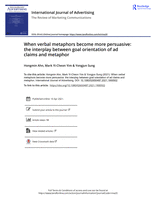
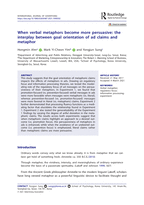
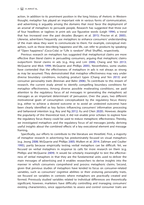
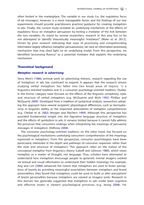
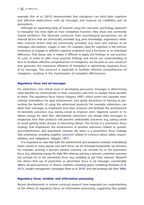
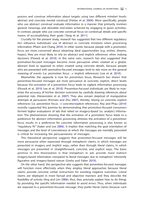
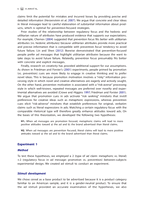
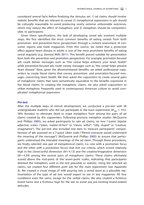
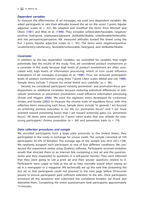
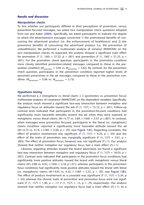
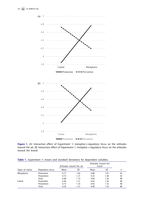
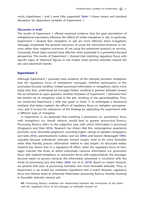
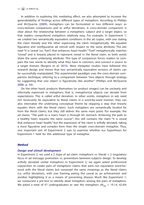
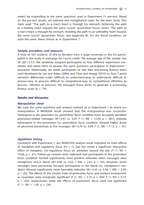
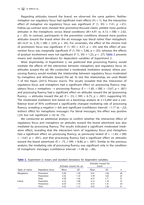
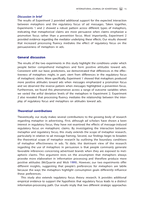
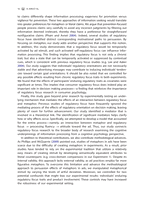
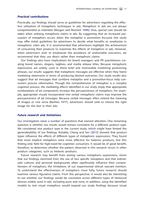
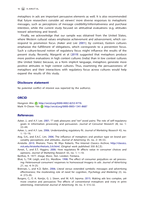
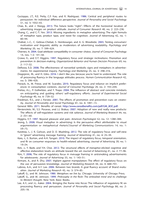
 분야
분야


